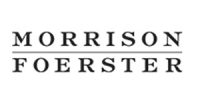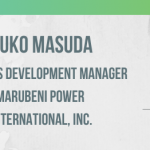The final installment of Women in Cleantech and Sustainability (WCS)’s flagship event series, WCS Talks, took place on Saturday, May 8, online.
It was Mother’s Day weekend, and WCS Chairwoman Lisa Ann Pinkerton kicked-off the event with a nod to the creativity and nurturing spirit that unites everyone in the WCS community – dedicated to using our creativity to come up with solutions to save our planet and using our nurturing instinct to look after mother Earth.
The themes of creativity, nurturing, community and mentorship also ran through the series of six inspiring, Ted-Talk-style presentations of the day:
Kelly Ratchinsky “Will Ferrell Got It Right. The Future Is In Norway, Today”
Kelly Ratchinsky‘s role at Innovation Norway involves forging partnerships between US and Norway that can result in greater prosperity for both. Much of this innovation is in the cleantech space and draws upon Norway’s deep maritime tradition. She kicked off the presentation with a hilarious video showing an exasperated Will Ferrill discovering how Norway is crushing it with relation to global EV sales. Norway boasts having the most sales per capita of EVs in the world, and is on track to meet its 2025 goal of all new car sales being zero emission.
Transportation by sea is another sector that Norway is forging ahead with electric innovation. She revealed the design of an electric autonomous cargo ship that is almost built. In Europe, nearly 60% of cargo shipping involves only short routes, making EV powered cargo shipping a good bet. Electric ferries are another maritime innovation in Norway that are already in the ferry fleet. Floating wind turbines are another way that the sea is the backdrop for a Norwegian renewable energy project. She concluded the presentation with a sneak preview of a subsea carbon capture project. Given that energy officials in California recently had a high level meeting with Norway’s Crown Prince Haakon, it seems as if innovation pollination between the two entities is well underway with Kelly Ratchinsky’s facilitation.
Richard Youngman “Can 2+2 Ever Equal 5?”
Richard Youngman, CEO of The Cleantech Group, set out to ask how 2+2 can equal 5, in an effort to overcome the climate crisis. He started off with a birds-eye view of the cleantech industry over the last three years, showing steady growth of the renewable sector in relation to the shrinking market caps of some old guard companies, such as Exxon Mobile. Dramatic graphics illustrated a steady year-over-year expansion in sectors represented by companies such as Tesla, both as an investment attraction and market cap growth. Moreover, Youngman’s slides tracked dramatically increased corporate commitments announced in 2020 towards net zero and/or science based carbon reduction targets, most of which seemed unimaginable just two to three years ago.
He also opened up about putting the spotlight on his own company’s events division and his decision to be intentional to improve The Cleantech Group’s DEI representation. As a result, the number of female speakers at the company’s annual conference nearly doubled from 26 to 48 in the last three years. Attendance by women grew by only 5% – leaving room for improvement. He concluded with a final message that women leaders can bring essential skills and styles of community and collaboration over traditional competition based leadership style – saying that our current 2+2 system won’t get us to 5 unless we include everyone in the fight against the climate catastrophe.
Meredith McClintock “How My Life’s Work Found Me”

Following Richard’s birdseye view, the next talk brought to life the story of one of the solar industry’s first female CEOs. Meredith McClintock, currently Head of Business Development at Aurora Solar, took us on her journey of letting life’s work find her. Most of us can identify with a connection to animals from our childhood – and Meredith’s love of nature and science fueled her dreams of becoming Jane Goodall or an astronaut. But then she grew up, and like many, followed the expected path into business. While she was successful at her different roles, something was missing. So, when she started to look for a new role after taking time off, she realized that there were essentially three criteria she cared most about: 1) the environment; 2) business and its power to create impact; and 3) entrepreneurship.
After a lot of searching, she honed-in on climate change as a key problem. And in terms of business opportunities, solar seemed at its prime. Combining the threads of what drove her, she decided to start a company. With no experience in that field, through hard work and market research, she built a successful business that enabled thousands of people to go solar through patented, easy to install modular systems. When she sold the company, she knew she had made a difference. And that showed her how she could define her life’s purpose. Not through a sudden epiphany, not through a single path – but a realization that “fighting climate change has to come first […] I always come back to this.” With these words, Meredith reminds us to pay attention to our original self, and let your life’s work find you!
Natalie Hollier “What I Learned From Living Carbon Neutral in 2020”

The next speaker, Natalie Hollier, Principal Product Manager at Microsoft, shows how commitment to sustainability goes beyond the workplace. In 2020, she set herself the goal of living carbon neutral. She mapped out three stages, looking at all the categories in her life – from energy, transport, food to finances and more: 1) reduce consumption, 2) switch to green, 3) offset to zero.
The hardest but most interesting part was reducing and greening everything she did.
Everything you consume contributes to creating more carbon, so Natalie started using Thredup for thrift clothes, DeliverZero or the buy nothing Facebook group. She realized that zero plastic options, minimalism, circularity, right to repair are not competing ideas, but all line up to less carbon, because every product we buy has an impact on climate. Less water also lines up to less carbon, so she started using Blueland for cleaning products, Truearth laundry detergent, dry shampoo bars, toothpaste tablets… And even carbon offsets, as controversial as they are, helped her as she could transparently calculate and offset her remaining emissions through companies like wren and Tradewater.
The most important lesson she took away is that while it does take effort, it is important for people who have the resources, time and privilege to make choices that create demand for more climate friendly products. The work is never done, and that is exciting! So much to learn, so many new goals to set. Following Natalie’s examples, can you set goals for the next year? And for the next 5, or 10 years? Eat less meat? Try out a new waterless cleaning product? Buy circular goods? Maybe just 1 domestic, and 1 international flight per year?
Jessica Poliner “Saving the World – with Plastic!”
Jessica Poliner, started her career as a corporate attorney and then shifted to business. The corporate world was dominated by men, but that did not deter her from achieving her goals. Currently President of Molding Solutions at the Barnes Group Inc., a company established in 1857, Jessica’s talk focused on saving the world with plastic. Given that plastic has impacted our lives and our planet in a negative way, one is keen to hear how it has and can save us.
Jessica emphasized that instead of thinking about ways to eradicate plastic, we should be working to change plastic and solve the issue of plastic waste. She took us on a colorful data filled slideshow journey starting from the creation of plastic as a scientific mishap, to the rise of plastics globally, to the benefits of plastic, to the impact plastic has had on our environment, and on to fostering sustainability. The bottom-line: we need to establish a Circular Economy.
Despite the dramatic increase in single use plastic and the resulting plastic pollution due to the Coronavirus, it is difficult to imagine life without plastic. Jessica explained how recycling has increased and described the excellent programs in Germany to manage recycling. A model to follow. A key goal is to solve the plastic waste issue and shift toward a world in which environmentally friendly plastic is prevalent.
Susan Gladwin “Life After Sustainability”
Susan Gladwin leads a business strategy consulting practice accelerating the shift to a circular and decarbonized economy; she also works with WCS on its ‘Women on Corporate Boards’ program.
Susan took a different approach with her talk “Life after sustainability”: With no slides, she started with a guided meditation – asking the audience to close our eyes and reflect about ‘life after sustainability’. ‘Clean air’, ‘beach sand’, and ‘Living more simply so that others may simply live’ were some of the impressions the attendees shared in the chat.
Susan then questioned the concept of sustainability as a term that was coined decades ago – conceiving climate change as something that was far enough ahead so companies can create a bolt-on department and put out some reports about it. But we’re not on track to save the planet despite all those great initiatives. So she encouraged us to get more radical about it and dare to “rock the boat”. To ask questions about our corporate behavior: if we love our companies and want them to be around in the future, what does the pace of change need to be? To ask ourselves what we want our life to be after sustainability.
Liz Ludwig “The Importance of Female Mentorship”
Liz Ludwig is Chief Marketing Officer at Ohm Connect, a California-based company providing home energy management solutions. Liz’s talk focused on the importance of female mentorship based on her professional experience. Her career took her to several cities, states, and countries, but through this journey all her bosses were men and women were grossly underrepresented on the leadership teams.
Liz realized that she is not alone but found that women were afraid to ask each other for help. Her inspiring talk encouraged women to lean on each other, support each other, and seek out mentors. Here are some eye-opening statistics Liz provided: in December 2020 women held only 7% of CEO positions in S&P 500 companies. 50% of tech startups do not have women on their leadership teams. 72% of women in tech report being outnumbered by men in business meetings by a ratio of at least 2:1. In the clean technology space, women executive officers stand at only 14%.
This brings us back to the importance of women mentors and women in the workplace. You do not have to search far and wide to find mentors. Liz encourages people to just look inside their own company. Suggest and encourage your management to hire more women. If you manage a team, hire women. Find peer groups. There are many ways in which the discouraging statistics above can be improved for the better and toward the inclusion of women. Liz inspires us to be challenged!
As usual, the event also facilitated a number of networking opportunities, this time including 1:1 speed-networking breakout rooms, and group chats about the US’ role in cleantech on the international level, and about the role of plastic and recycling in the future.
Thank you to all our sponsors who made this event possible!
Sponsored by:














Would you like to join WCS Talks and other events in the future?
Sign up for our newsletter to get notified and become a member to enjoy free networking events and discounts for our flagship events including WCS Talks.









